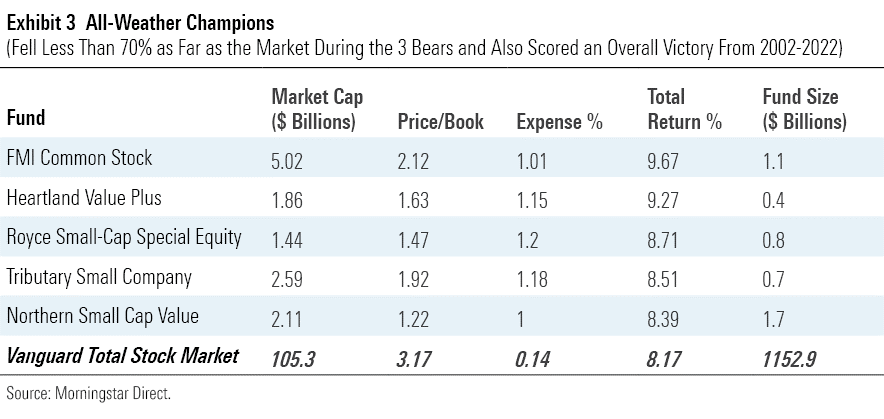Dear friends,
Welcome to February. It’s a month we associate with love, St. Valentine’s Day. As holidays go, it’s another triumph for the marketers. The holiday began life as a Roman fertility festival, Lupercalia, and its attendant parties. Eventually, the Christian church made the same move here as they did with the pagan year-end festival; they repurposed the December solstice festival into Christmas and the February fertility festival into St. Valentine’s Day. The moves gave them one more tool for converting party-loving pagans into … well, party-loving nominal Christians.
February itself was the month of purification, “februa” means “to cleanse,” ahead of the Roman New Year, which began with the planting of crops in March. And so you’d take one last opportunity to resolve old grudges, clear the air with aggrieved friends, review your portfolio, repent your mistakes, and begin your new year with a clean slate.
Okay, I might have slipped the “review your portfolio” bit in, but the rest was totally Roman.
Thinking about the new year
For most investors, 2022 was an execrable year full of bad results and worst prophecies. 2023 has started off with a ferocious rally among some of the lowest-quality stocks; Morningstar’s screener shows 300 of the lowest-quality stocks (domestic companies with no economic moat and “extreme” value uncertainty ratings) rose by 100 – 10,000% in January 2023. On the flip side, no wide moat / low uncertainty stock returned more than 24%.
Morningstar, and others, believe that the markets are broadly undervalued and that “the best days for investors lie ahead” (“Are We in a Low Return World? We Doubt It,” 1/27/2023). Their oddly cheerful conclusion is that bonds are priced to deliver 1.5-2.0% real returns over the coming decade, with a 60/40 portfolio set to reel in 3.6% real returns.
They might be right, but my colleagues and I suggest thoughtful caution.
Devesh’s essay this month, “In Defense of Taking Risk,” walks readers through the process of understanding and calibrating the risks they’re exposing themselves to. One tool he offers is a scenario analysis that begins to answer the questions, “how bad might it get?” and “what will I do if it does?” A simplified version: (1) lay out your current portfolio by asset class, then (2) discount your stocks by 25%, your bonds by 10%, and your cryptocurrencies by 100%. The percentages represent typical bear market outcomes. Check the resulting values and ask, “what should I do if this comes to pass?”
| January 23 | December 23 | |
| Stocks | $30,000 | $22,500 |
| Bonds | $15,000 | $13,500 |
| Crypto | $5,000 | $o |
| $50,000 | $36,000 |
Why assign zero value to crypto? Simple. Because crypto is utterly disconnected from anything other than pure speculation, there is no way of predicting its value. Since you can’t count on it to be there (over 900 cryptocurrencies a year fail, and their accounts go to zero), prudent budgets assume it won’t be there.
In concert with Devesh’s work, I’ve shared the shape and results of Snowball’s indolent portfolio again this year. Using the tools at MFO Premium, I calculated my year’s performance and how it compared to what would have happened if I had held the average fund in each niche rather than the ones I picked.
The result: the portfolio was down but by less than expected. We found the same thing when we looked at its performance during the Covid Bear in 2020. It appears that risk is stickier than returns (John Rekenthaler, below, found the exact same thing in his search for bear-resistant winners); there’s a predictive validity in selecting managers who perform well in the long-term and have a record of thriving during downturns. That essay suggests a few lessons from my occasional wins and many mistakes.
Lynn Bolin departs from his normal habit of constructing and testing portfolios to offer an extended analysis of a single fund, American Century Avantis All Equity Markets ETF, a low-cost, actively managed fund-of-funds that aims to outperform a passive benchmark. The fact that it’s led by DFA’s former chief investment officer, Eduardo Repetto, gives you a sense of the commitment to harvesting the advantages of both active (flexibility, adaptability) and passive (cheap, transparent) approaches. Collectively the management team has over 80 years of experience at a half-dozen top-tier firms.
On the theme of single funds, I also share an update on The Cook & Bynum Fund, which suddenly finds itself atop Morningstar’s emerging markets (??) heap, and the newly launched Matthews Emerging Markets ex-China Active ETF. The potential resurgence of emerging markets investing will guide a bunch of our coverage in the months ahead.
Finally, The Shadow gathers “all the news you need to know,” at least about the investment industry, into his short and sharp Briefly Noted.
On politicians and sustainable investing options: Please shut up.
Our planet is in trouble.

Investors’ decisions about where to commit trillions of dollars in assets might make at least a little difference in the fight to keep the world habitable for us all.
That, in a nutshell, is the case for sustainable investing. There are, however, three problems with sustainable investing:
- It’s incredibly complicated – what counts as “good”? What do you do with a firm that’s 50.1% good and 49.9% bad? What do you do with the best firm in the worst industry? How do you weigh exposure to carbon production as one risk factor relative to, say, mediocre management or high debt loads, as others?
- Its friends. During The Great Green Orgy of 2020-21, investment marketers rebranded every slow-moving fund in their stable as an ESG vehicle as well as rolling out everything from the Vegan ETF to endless Carbon-Free, Carbon-Lite, Carbon-Neutral, and Inverse Double-Carbon Whammy funds and ETFs with great fanfare but without any profound analysis of their impact. The term of the year was “greenwashing.”
- Its enemies. Conservative politicians, operating with even less reflection than industry marketers, have latched onto ESG funds with the same passion that a bulldog latches onto a chunk of brisket. Apparently, the scent of red meat triggers both. State-level bans on “woke investing” followed.
Utah officials demanded that S&P withdraw its ESG scores for state bonds, and Missouri’s attorney general is leading a multi-state investigation. Eighteen states are investigating Morningstar and its Sustainalytics arm. Nineteen states sent a nastygram to BlackRock CEO, charging that BlackRock’s ESG sensitivity would “force the phase-out of fossil fuels, increase energy prices, drive inflation, and weaken the national security of the United States.” Texas bans cities from using financial firms that are woke. Florida barred the state’s pension fund from considering ESG factors at all; it was quickly followed by eight to ten other states.
In theory, this is all being done to protect investors’ returns. In practice, it’s another tirade designed to advance a set of political ambitions in the name of defeating another set of them. The New York Times highlighted the statements of Louisiana’s treasurer as an illustration: he denounced ESG investing because of “Louisiana law on fiduciary duties, which requires a sole focus on financial returns for the beneficiaries of state funds” but then contradicted himself by declaring his actions were “necessary to protect Louisiana from actions and policies that would actively seek to hamstring our fossil fuel sector. Simply put, we cannot be party to the crippling of our own economy” (“Politicians Want to Keep Money Out of E.S.G. Funds. Could It Backfire?” 1/30/2023). If your “sole focus” is on financial returns, then protecting one politically powerful industry should be off the table.
But, for politicians, politics is never off the table.
To which we respond, please shut up.
The truth is that investing is all about managing risks and maximizing returns. Products which fail one or both of those tests are dead. Period. Investors will not consistently commit their resources to high risk / low return vehicles. That explains why funds and ETFs have been liquidated by the hundreds and why underperforming managers are routinely fired by investment committees. Telling professionals that they are forbidden from considering certain sorts of risks does not improve our prospects. The smooth operation of that system requires transparency. It does not require the intervention of politicians.
By all means, police greenwashing. Standardize disclosures and reporting. Publicize benchmarks and metrics. Encourage alternatives. But otherwise, keep out of people’s portfolios.
John Rekenthaler discovers the sad truths about all-weather funds
Truth #1: there are some, and they have predictable characteristics.
Truth #2: no one invests in them.
Mr. Rekenthaler, Morningstar’s curmudgeon-in-chief and longest-tenured fund savant, recently went on the search for funds that you might plausibly buy and hold forever. Consistent with our discussion of risk and return management above, he looked for folks who outperformed the stock market in the long term and protected you during market turmoil. His criteria were:
all-weather U.S. equity funds as those funds that have outgained the overall stock market over the long haul while also experiencing less than 70% of the stock market’s decline in 2002, 2008, and 2022.
His happy finding was that the funds that protected you in 2002 also likely protected you from the very different turmoil in 2008 and the still-different turmoil in 2022. That is, risk management was something that could be maintained across different markets and different threats.
In the end, Mr. Rekenthaler identified five funds that have been winning on your behalf over the course of this century.

As he studies the common characteristics of his winners, he notes,
the all-weather winners stand out from the mainstream. Each of the five all-weather funds is sponsored by a niche organization. The funds have relatively few shareholders, and their performances are driven by small to midsized companies that sell at low price multiples. Predictably, their expense ratios also sharply exceed that of the index fund.
. . . the most successful all-weather funds walk where others have feared to tread. Their rivals’ reluctance is understandable. Small-value funds can languish for long bull-market stretches, as during the late 1990s and then again two decades later. Those times are intensely frustrating. (Perhaps even worse for investors than suffering outright losses is watching while others score fat profits.) Such lulls, along with unfavorable publicity, have limited the amount of assets in small-value funds—especially, as we have seen, among the all-weather winners. (All-Weather Stock Funds Do Exist, 1/12/2023).
By Morningstar’s calculation, four of the five funds have “active share” ratings of above 95; Northern Small Cap Value, a quant fund whose program stops it from deviating from its benchmark by too much, is the only exception. Four of the five have MFO’s highest performance rating over the past 20 years, with Northern coming in just a notch below. We would commend any of them to investors who suspect that the next market might be more sensitive to valuations and less enamored with mega-cap growth than the frenzy just passed.
Teresa Kong: Living my values.
One small change coming to my portfolio will be finding a replacement for Matthews Asia Total Return Bond (MAINX) fund, a tiny “curiosity position” in my retirement portfolio. Manager Teresa Kong quietly left the firm in July 2022, and Matthews announced their decision to liquidate their two fixed-income funds, both originally managed by her, in December 2022.
We’ve spoken with Ms. Kong on several occasions over the years. The fact that she’s brilliant, dedicated, and thoughtful is beyond question. Her arguments on the long-term prospects of Asian fixed income markets led me to long ago establish positions in her flagship fund, a curiosity position in my retirement portfolio – that is, just enough money to remind me to pay attention – and in my non-retirement one.
We caught up with Teresa in January 2023 to pursue two questions: (1) where are you? And (2) what should I do with my portfolio? She had a fascinating answer to one of those two.
Teresa grew up in Minnesota but has lived in Hong Kong, China, and Germany, where she met her husband, a Czech citizen. She’s studied at some of the world’s best schools and has worked for some of its best financial firms. And she decided, after 25 years in the business, it was time for a change.
“Curiosity has always been one of my core values. Living in Hong Kong then China, I couldn’t help but wonder about why some places prosper, other wither. Why some have lives full of meaning, and others don’t. And so I’ve decided to center this chapter of my life around my values.”
In particular, she’s working with two small firms on projects that might end up being really consequential. The “moon shot” project is working with a start-up that’s trying to help people reassert “data sovereignty.” The short version is that Google, Meta, and others make billions of dollars a year by vacuuming up your personal information – what apps you use, what sites you visit, what searches you conduct, what people you contact, what businesses you’re connected with – and selling it to other corporations. They get billions. You get bupkus. (Technically, you get your privacy invaded, in addition to bupkus.) The startup is looking at technology that might allow you to achieve negotiating leverage with the Googles of the world: “you get (a) the data I choose to release so long as (b) I get fair compensation for it.”
 The second project is the pursuit of “food sovereignty” through the creation of a vertical farm in Wilmington, Delaware. In addition to being Joe Biden’s home district, Wilmington is a food desert, a place where the majority of residents don’t have routine access to fresh, healthy, affordable food. Teresa’s project – which includes a community space, learning space, and kitchen in addition to the farm itself – aims to change that. They have an architect working on securing a site and are working through the IRS paperwork to become a 501(c)3 non-profit organization.
The second project is the pursuit of “food sovereignty” through the creation of a vertical farm in Wilmington, Delaware. In addition to being Joe Biden’s home district, Wilmington is a food desert, a place where the majority of residents don’t have routine access to fresh, healthy, affordable food. Teresa’s project – which includes a community space, learning space, and kitchen in addition to the farm itself – aims to change that. They have an architect working on securing a site and are working through the IRS paperwork to become a 501(c)3 non-profit organization.
The one question she couldn’t answer is what to do with my portfolio. There is, she agrees, nothing quite like the Matthews Asia fixed income funds. She has promised to mull over the possibilities and share her conclusions in the months to come.
We wish her well.
Jeff DeMaso: Living my newsletter!
We noted in January that Daniel Wiener’s iconic Vanguard investor newsletter was undergoing two epochal changes. First, following a decision by their long-time publisher, they were ceasing production of their physical newsletter and moving entirely online. Second, Dan’s long-time associate Jeff DeMaso was succeeding Dan as the face of the franchise.
Tania Mitra, writing for CityWire, reports that “Adviser Investments’ director of research Jeff DeMaso has left the firm after 12 years to focus on his newsletter, The Independent Vanguard Advisor” (“Adviser Investments gatekeeper exits to focus on Vanguard funds newsletter,” 2/1/2023). Mitra quotes Jeff as saying
What’s next for me is really going all in on this newsletter, that in some ways, I’ve been working on for the better part of a decade. The new wrinkle and the why now is that I got an opportunity to self-publish and own the newsletter and getting the chance to go all in [and] focus on the entrepreneurial angle of starting a new newsletter appealed to me and [it] wasn’t something I could turn down.
The Independent Vanguard Adviser website offers some new free content weekly, as well as peeks at its premium content. The most recent weekly newsletter highlights a new fund launch, manager changes, and Jeff’s outlook for the year (umm … positive).
We wish him and his venerable senior partner great success as they try to help investors make the best possible use of the increasingly troubled $2 trillion beast.
One more certainty lost: “A pint’s a pound the world around!”
Charles Adiel Lewis Totten (1851 –1908), a 19th-century British eccentric (the term is virtually a tautology), wrote the theme song for the International Institute for Preserving and Perfecting (Anglo-Saxon) Weights and Measures. He entitled his pub favorite hit, “A Pint’s a Pound the World Around,” in 1883, which included these lines:
Then swell the chorus heartily.
Let every Saxon sing:
“A pint’s a pound the world around.”
Till all the earth shall ring.
“A pint’s a pound the world around”
For rich and poor the same;
Just measure and a perfect weight
Called by their ancient name!
I’ve discovered this month that shrinkflation has gutted this last brave outpost of (Anglo-Saxon) Weights and Measures. Hefting my 15 ounce pint container of yogurt next to my 10.5 ounce pound of coffee (down from last year’s 12 ounce pound), I saw the last remnant of cosmic certainty drift away like the fog.
At least I can console myself with Charmin’s wider sheets**.

About those **. Bathroom tissue, to be polite, was once standardized at 4.5 x 4.5”. To mask price increases, the sheets were trimmed to 4.2 x 4.2”. And now manufacturers offer you a reason to stop complaining about price gouging: you’re getting Wider Sheets! But also shorter ones (4,” down from 4.2 and 4.5), which we needn’t mention.
Thanks, as ever …
Lupercalian blessings to our dependable regulars, the good folks at S&F Investment Advisors, Wilson, Gregory, William, the other William, Brian, David, and Doug.
On January 2nd we received a note and a contribution from an old friend, Crash, who’s enjoying retirement and still adding to his collection of 8300 comments on the MFO Discussion board. Cheers, big guy!
Finally, Gardey Financial Advisors, Benjamin from Ann Arbor (the eternal squabble is whether I win and we go to Zingerman’s first or she wins and we go to Found … TBH, she wins), Joseph, Andrew from Akron, and John. We thank you all.
As ever,









